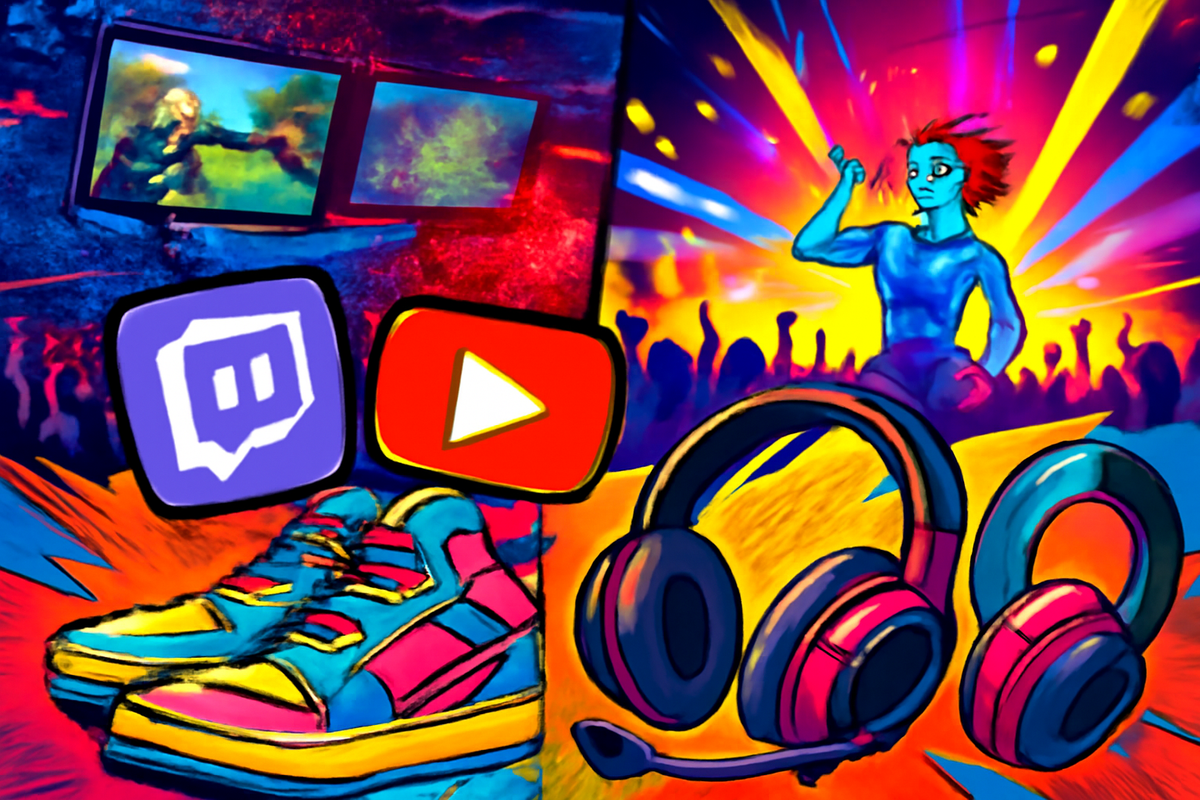Gaming Meets Pop Culture: The Evolution of Esports and Virtual Worlds
Discover how gaming transformed into a pop culture powerhouse exploring esports’ Olympic rise, virtual concerts in games like Fortnite, and how virtual worlds reshape entertainment and social connection worldwide.

Have you ever wondered how the simple pastime of playing video games transformed into a global cultural phenomenon watched by millions, celebrated alongside music and sports, and even featured on the Olympic stage?
Gaming is no longer just a hobby it’s a powerful force shaping modern pop culture, redefining entertainment, social interactions, and even the way we experience music and sports. The rise of esports and immersive virtual worlds has blurred the lines between reality and digital experiences, creating new forms of community and competition that transcend traditional boundaries.
In this article, we’ll dive deep into how gaming has evolved from niche activity to mainstream pop culture cornerstone. We’ll explore major milestones like esports’ Olympic recognition, the explosion of virtual concerts in massive multiplayer games, and the lasting impact these trends have on entertainment and society at large.
The Rise of Gaming as a Cultural Phenomenon
From Basement Hobby to Global Spectacle
Just a few decades ago, video gaming was often seen as a solitary or fringe activity something enthusiasts enjoyed in their bedrooms or at arcades. Today, gaming’s reach is unparalleled, with over 3 billion gamers worldwide spanning every age, gender, and culture.
This explosive growth has driven gaming into every facet of popular culture. Game characters and stories influence movies, TV shows, and fashion. Celebrities stream their gameplay to millions. Entire communities gather around games to socialize, compete, and celebrate shared interests.
Esports: From Underground Competitions to Olympic Recognition
What Is Esports?
Esports refers to competitive video gaming where players or teams compete in organized tournaments for cash prizes, glory, and fan followings. Unlike casual gaming, esports is highly professionalized, with rigorous training, coaches, sponsors, and dedicated fan bases.

Popular esports titles like League of Legends, Counter-Strike: Global Offensive, Fortnite, and Dota 2 have become household names, each boasting tournaments with prize pools often in the millions.
Esports and the Olympics: A Historic Partnership
In a groundbreaking shift, esports is moving closer to the Olympic Games the pinnacle of global sports. The International Olympic Committee (IOC) has acknowledged esports as a legitimate form of competition and has explored ways to integrate it into future Games.
This recognition not only validates esports as a sport but also amplifies its cultural significance. It’s a testament to gaming’s ability to unite people across borders, languages, and cultures in competition and celebration.
Major Esports Events as Cultural Festivals
Esports tournaments now fill stadiums with tens of thousands of fans and attract millions more online. Events like The International (Dota 2), the League of Legends World Championship, and the Fortnite World Cup are akin to the Super Bowl or FIFA World Cup for gaming fans.
These tournaments blend high-stakes competition with music performances, cosplay showcases, and interactive fan experiences, making them massive pop culture festivals that rival traditional sports and entertainment events.
Virtual Worlds: The New Frontier for Socializing and Entertainment
Beyond Gaming: Virtual Worlds as Social Platforms
Games like Fortnite, Minecraft, and Roblox have evolved beyond simple gameplay to become social hubs where users can meet, chat, and attend events together. These platforms host virtual concerts, movie premieres, and fashion shows, offering immersive experiences that traditional media can’t match.
The Explosion of Virtual Concerts
One of the most astonishing developments has been the rise of virtual concerts inside games. Big-name artists like Travis Scott, Ariana Grande, and Marshmello have performed live within games, attracting millions of viewers.
These concerts blend music, gaming, and technology, offering interactive experiences where players participate rather than just watch. The visual spectacle, combined with social engagement, creates a new form of entertainment that appeals especially to younger audiences.
Case Study: Travis Scott’s Fortnite Concert
In 2020, Travis Scott’s Astronomical event inside Fortnite drew over 12 million concurrent viewers a staggering number that eclipsed many real-world concerts. Players experienced a multimedia journey through surreal landscapes while enjoying exclusive music performances.
This event proved that virtual worlds could host cultural moments as impactful as traditional live events, paving the way for a future where music and gaming are seamlessly intertwined.
How Gaming Influences Mainstream Pop Culture
Fashion and Merchandise
Gaming-inspired fashion has surged in popularity, with collaborations between game developers and major brands like Nike, Louis Vuitton, and Gucci. Limited-edition sneakers, apparel, and accessories featuring game characters or esports teams are hot commodities, reflecting the cultural cachet of gaming.

Movies, TV, and Storytelling
Blockbuster films based on games, such as Detective Pikachu, Sonic the Hedgehog, and upcoming adaptations of The Last of Us and Halo, bring gaming narratives to wider audiences. TV shows also incorporate gaming culture themes, blending reality and digital life.
Influencers and Streamers
The rise of platforms like Twitch and YouTube Gaming has created new celebrities streamers who build communities, influence trends, and shape gaming culture. These personalities often cross over into music, fashion, and philanthropy, making gaming a powerful cultural hub.

The Social Impact of Gaming and Virtual Worlds
Building Communities and Friendships
For many, games and virtual worlds offer vital social connections. Players from around the world bond over shared goals and experiences, forming friendships that transcend geography and demographics.
Inclusivity and Accessibility
Gaming is increasingly recognized for its potential to promote inclusivity. Virtual worlds can accommodate players of all abilities and backgrounds, fostering diverse communities united by common interests.
Education and Skill Development
Games also serve educational purposes, teaching teamwork, strategy, and problem-solving. Esports scholarships and academic programs are emerging, legitimizing gaming as a pathway to careers and personal growth.
What’s Next? The Future of Gaming in Pop Culture
Metaverse Expansion
The concept of the metaverse an interconnected, immersive digital universe—is gaining traction. Gaming platforms will likely evolve into vast virtual ecosystems blending socializing, shopping, entertainment, and work.
Cross-Media Collaborations
Expect deeper collaborations between gaming, music, film, and fashion industries. Hybrid events and content will become commonplace, further integrating gaming into everyday cultural experiences.
New Technologies
Advances in VR, AR, and AI will enhance immersion and personalization, making virtual worlds more realistic and interactive. This will open new possibilities for storytelling and socializing.
Conclusion: Gaming’s Place at the Heart of Pop Culture
From humble beginnings to global spectacle, gaming has firmly cemented itself in the fabric of pop culture. Esports’ rise to Olympic recognition and the dazzling virtual concerts hosted inside games exemplify how digital entertainment is reshaping our world.
As technology evolves and communities grow, the fusion of gaming and pop culture will only deepen, offering fresh opportunities for creativity, connection, and cultural expression. Whether you’re a player, spectator, or casual fan, the gaming revolution is here and it’s rewriting the rules of entertainment as we know it.




